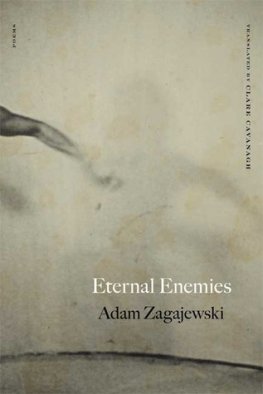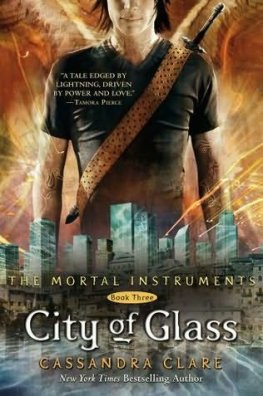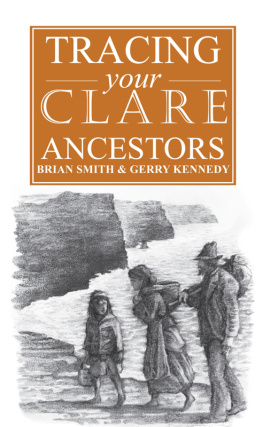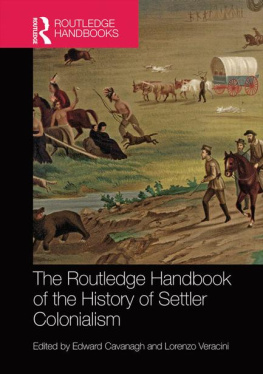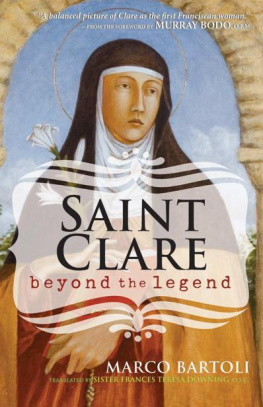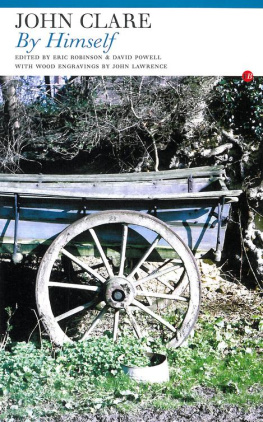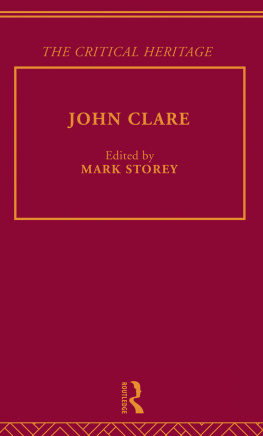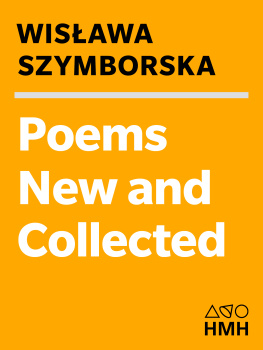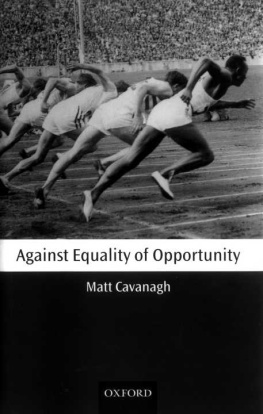Cavanagh Clare - Eternal enemies: poems
Here you can read online Cavanagh Clare - Eternal enemies: poems full text of the book (entire story) in english for free. Download pdf and epub, get meaning, cover and reviews about this ebook. City: New York;Godalming, year: 2009, publisher: Farrar, Straus Giroux, Melia [distributor], genre: Art. Description of the work, (preface) as well as reviews are available. Best literature library LitArk.com created for fans of good reading and offers a wide selection of genres:
Romance novel
Science fiction
Adventure
Detective
Science
History
Home and family
Prose
Art
Politics
Computer
Non-fiction
Religion
Business
Children
Humor
Choose a favorite category and find really read worthwhile books. Enjoy immersion in the world of imagination, feel the emotions of the characters or learn something new for yourself, make an fascinating discovery.

- Book:Eternal enemies: poems
- Author:
- Publisher:Farrar, Straus Giroux, Melia [distributor]
- Genre:
- Year:2009
- City:New York;Godalming
- Rating:5 / 5
- Favourites:Add to favourites
- Your mark:
- 100
- 1
- 2
- 3
- 4
- 5
Eternal enemies: poems: summary, description and annotation
We offer to read an annotation, description, summary or preface (depends on what the author of the book "Eternal enemies: poems" wrote himself). If you haven't found the necessary information about the book — write in the comments, we will try to find it.
Eternal enemies: poems — read online for free the complete book (whole text) full work
Below is the text of the book, divided by pages. System saving the place of the last page read, allows you to conveniently read the book "Eternal enemies: poems" online for free, without having to search again every time where you left off. Put a bookmark, and you can go to the page where you finished reading at any time.
Font size:
Interval:
Bookmark:
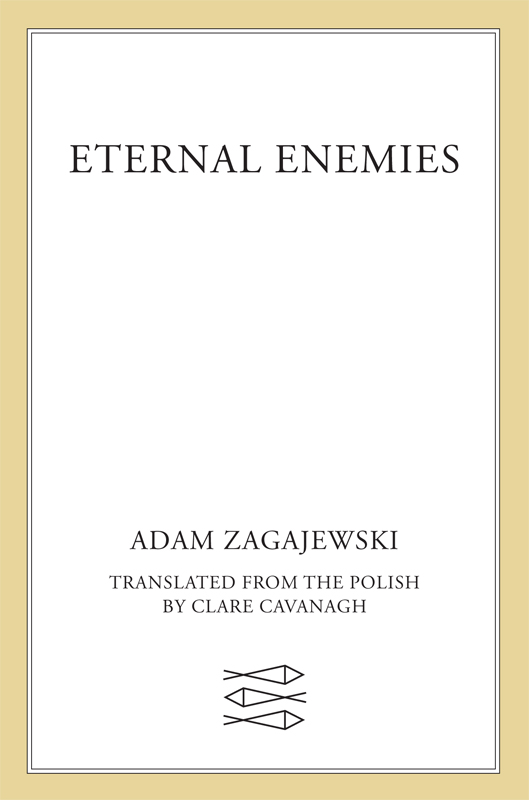
 The author and publisher have provided this e-book to you for your personal use only. You may not make this e-book publicly available in any way. Copyright infringement is against the law. If you believe the copy of this e-book you are reading infringes on the authors copyright, please notify the publisher at: us.macmillanusa.com/piracy. CONTENTS TO MAYA , toujours I STAR I returned to you years later, gray and lovely city, unchanging city buried in the waters of the past. Im no longer the student of philosophy, poetry, and curiosity, Im not the young poet who wrote too many lines and wandered in the maze of narrow streets and illusions.
The author and publisher have provided this e-book to you for your personal use only. You may not make this e-book publicly available in any way. Copyright infringement is against the law. If you believe the copy of this e-book you are reading infringes on the authors copyright, please notify the publisher at: us.macmillanusa.com/piracy. CONTENTS TO MAYA , toujours I STAR I returned to you years later, gray and lovely city, unchanging city buried in the waters of the past. Im no longer the student of philosophy, poetry, and curiosity, Im not the young poet who wrote too many lines and wandered in the maze of narrow streets and illusions. The sovereign of clocks and shadows has touched my brow with his hand, but still Im guided by a star by brightness and only brightness can undo or save me. EN ROUTE 1. WITHOUT BAGGAGE To travel without baggage, sleep in the train on a hard wooden bench, forget your native land, emerge from small stations when a gray sky rises and shing boats head to sea. 2. IN BELGIUM It was drizzling in Belgium and the river wound between hills. I thought, Im so imperfect.
The trees sat in the meadows like priests in green cassocks. October was hiding in the weeds. No, maam, I said, this is the nontalking compartment. 3. A HAWK CIRCLES ABOVE THE HIGHWAY It will be disappointed if it swoops down on sheet iron, on gas, on a tape of tawdry music, on our narrow hearts. 4.
MONT BLANC It shines from afar, white and cautious, like a lantern for shadows. 5. SEGESTA On the meadow a vast temple a wild animal open to the sky. 6. SUMMER Summer was gigantic, triumphant and our little car looked lost on the road going to Verdun. 7.
THE STATION IN BYTOM In the underground tunnel cigarette butts grow, not daisies. It stinks of loneliness. 8. RETIRED PEOPLE ON A FIELD TRIP Theyre learning to walk on land. 9. GULLS Eternity doesnt travel, eternity waits.
In a shing port only the gulls are chatty. 10. THE THEATER IN TAORMINA From the theater in Taormina you spot the snow on Etnas peak and the gleaming sea. Which is the better actor? 11. A BLACK CAT A black cat comes out to greet us as if to say, look at me and not some old Romanesque church. 12. 12.
A ROMANESQUE CHURCH At the bottom of the valley a Romanesque church at rest: theres wine in this cask. 13. LIGHT Light on the walls of old houses, June. Passerby, open your eyes. 14. AT DAWN The worlds materiality at dawn and the souls frailty.
MUSIC IN THE CAR Music heard with you at home or in the car or even while strolling didnt always sound as pristine as piano tuners might wish it was sometimes mixed with voices full of fear and pain, and then that music was more than music, it was our living and our dying. THE SWALLOWS OF AUSCHWITZ In the barracks quiet, in the silence of a summer Sunday, the swallows shrill cry. Is this really all thats left of human speech? STOLARSKA STREET The small crowd by the American consulate ripples like a jellysh in water. A young Dominican strides down the sidewalk and passersby yield piously. Im at home again, silent as a Buddhist. I count the days of happiness and fretting, days spent seeking you frantically, nding just a metaphor, an image, days of Ecclesiastes and the Psalmist.
I remember the heatstruck scent of heather, the smell of sap in the forest by the sea, the dark of a white chapel in Provence, where only a candles sun glowed. I remember Greeces small olives, Westphalias gleaming railroads, and the long trip to bid my mother goodbye on an airplane where they showed a comedy, everyone laughed loudly. I returned to the city of sweet cakes, bitter chocolate, and lovely funerals (a grain of hope was once buried here), the city of starched memory but the anxiety that drives wanderers, and turns the wheels of bicycles, mills, and clocks, wont leave me, it remains concealed in my heart like a starving deserter in an abandoned circus wagon. GENEALOGY Ill never know them, those outmoded gures the same as we are, yet completely different. My imagination works to unlock the mystery of their being, it cant wait for the release of memorys secret archives. I see them in cramped classrooms, in the small provincial towns of the Hapsburgs unhappy empire.
Poplars twitch hysterically outside the windows while snow and rain dictate their own orthography. They grip a useless scrap of chalk helplessly in their sts, in ngers black with ink. They labor to reveal the worlds mystery to noisy, hungry children, who only grow and scream. My schoolmaster forebears fought to calm an angry ocean just like that mad artist who rose above the waves clutching his frail conductors wand. I imagine the void of their exhaustion, empty moments through which I spy their lifes core. And I think that when I too do my teaching, they gaze in turn at me, revising my mutterings, correcting my mistakes with the calm assurance of the dead.
KARMELICKA STREET TO FRITZ STERN Karmelicka Street, a sky blue tram, the sun, September, the rst day after vacation, some have come home from long trips, armored divisions enter Poland, children off to school dressed in their best, white and navy blue, like sails and sea, like memory and grapes and inspiration. The trees stand at attention, honoring the power of young minds that havent yet known re and sleep and can do what they want, nothing can stop them (not counting invisible limits). The trees greet the young respectfully, but yoube truthfulenvy that starting out, that setting off from home, from childhood, from the sweet darkness that tastes of almonds, raisins, and poppy seeds, you stop by the store for bread and then walk home, unhurried, whistling and humming carelessly; your school still hasnt started, the teachers have gone, the masters remain, distant as summer, your sleep sails through the clouds across the sky. LONG STREET Thankless streetlittle dry goods stores like sentries in Napoleons frozen army; country people peer into shop windows and their reections gaze back at dusty cars; Long Street trudging slowly to the suburbs, while the suburbs press toward the center. Lumbering trams groove the street, scentless perfume shops furrow it, and after rainstorms mud instead of manna; a street of dwarves and giants, creaking bikes, a street of small towns clustered in one room, napping after lunch, heads dropped on a soiled tablecloth, and clerics tangled in long cassocks; unsightly streetcoal rises here in fall, and in August the boredom of white heat. This is where you spent your rst years in the proud Renaissance town, you dashed to lectures and military drills in an outsized overcoat and now you wonder, can you return to the rapture of those years, can you still know so little and want so much, and wait, and go to sleep so swiftly, and wake adroitly so as not to startle your last dream despite the December dawns darkness.
Street long as patience. Street long as ight from a re, as a dream that never ends. TADEUSZ KANTOR He dressed in black, like a clerk at an insurance bureau who specializes in lost causes. Id spot him on Urzednicza rushing for a streetcar, and at Krzysztofory as he solemnly discharged his duties, receiving other artists dressed in black. I dismissed him with the pride of someone whos done nothing himself and despises the aws of nished things. Much later, though, I saw The Dead Class and other plays, and fell silent with fear and admiration I witnessed systematic dying, decline, I saw how time works on us, time stitched into clothes or rags, into the faces slipping features, I saw the work of tears and laughter, the gnashing of teeth, I saw boredom and yearning at work, and how prayer might live in us, if we would let it, what blowhard military marches really are, what killing is, and smiling, and what wars are, seen or unseen, just or not, what it means to be a Jew, a German, or a Pole, or maybe just human, why the elderly are childish, and children dwell in aging bodies on a high oor with no elevator and try to tell us something, let us know, but its useless, in vain they wave gray handkerchiefs stretching from their school desks scratched with penknives they already know that they have only the countless ways of letting go, the pathos of helpless smiles, the innumerable ways of taking leave, and they dont even hear the dirty stage sets singing with them, singing shyly and perhaps ascending into heaven.
Font size:
Interval:
Bookmark:
Similar books «Eternal enemies: poems»
Look at similar books to Eternal enemies: poems. We have selected literature similar in name and meaning in the hope of providing readers with more options to find new, interesting, not yet read works.
Discussion, reviews of the book Eternal enemies: poems and just readers' own opinions. Leave your comments, write what you think about the work, its meaning or the main characters. Specify what exactly you liked and what you didn't like, and why you think so.

